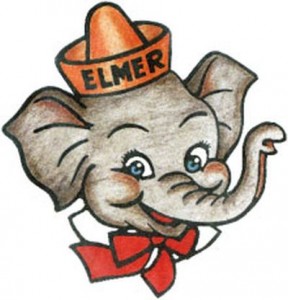 “Safe travels!” We hear that a lot, this time of year, when folks head off for the holidays. What does it mean to be safe?
“Safe travels!” We hear that a lot, this time of year, when folks head off for the holidays. What does it mean to be safe?
My first official memory of safety involves Elmer the Safety Elephant. We met him in kindergarten and he was a fixture in our primary and elementary school lives. Since “an elephant never forgets,” Elmer’s job was to remind us to be careful. He had his own flag and it was a big deal to help put up the Elmer flag every day, signalling that the school had been accident free. He had five safety rules:
- Look both ways before crossing the street.
- Don’t go between parked cars.
- Ride your bicycle safely and obey signs and signals.
- Play games in safe places, away from traffic.
- Walk, don’t run, when you leave the curb.
Elmer was born in Toronto in 1947, through a collaboration of the mayor, the police department and one of the daily newspapers. This vintage CBC video tells the story. (It’s worth a peek just to see the cars.) Child accidents declined and word spread across the nation. A national program followed and children in the hinterland, like me, got to meet him and learn and practise his five rules.
“Whatever happened to Elmer?” I wondered, this morning. Well, boys and girls, he’s still around. Like so many other celebrities, he’s had a facelift to counteract the effects of aging. And today, in addition to traffic safety, he now dispenses wisdom about fire safety, railway safety and Internet safety.
As adults, how do we channel our “inner Elmer?” Safe driving, snow tires, shovelled sidewaks, fresh batteries in the smoke detectors, holding the handrail and, yes, looking both ways – all these promote physical safety for ourselves and others.
I also think about another sort of safety.
- How do we make it safe for people to express themselves?
- How do we encourage people to listen to ideas with open minds?
- How do we encourage people to speak up about things that matter and ask questions about things that puzzle us without fear of being judged, labelled and dismissed?
One way to do that is to be conscious about our communication. We can assess the impact of our words before we speak them. We can share the intention that lies behind them. We can listen to understand, rather than simply to respond.
We create a climate of safety. Just like Elmer.
This is a series inspired by House of Friendship Kitchener’s 12 Days for Good project. There’s a theme for each of the 12 days – no geese-a-laying required. Learn more at http://12daysforgood.com
